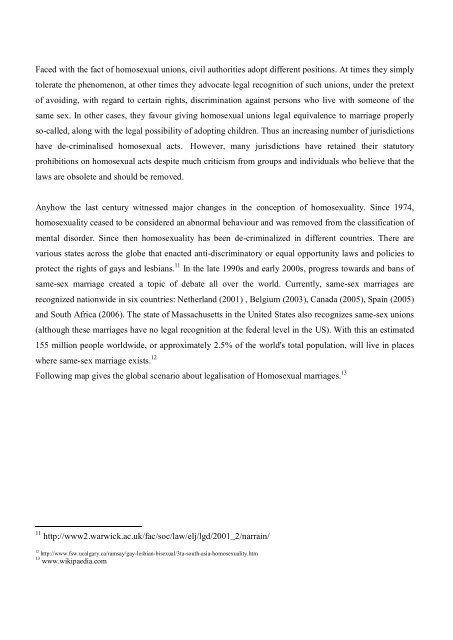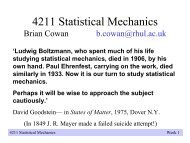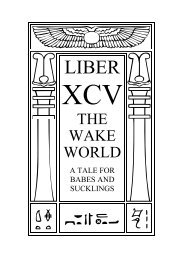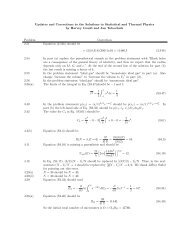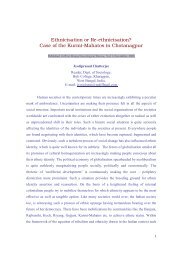Homosexuality In India – The Invisible Conflict
Homosexuality In India – The Invisible Conflict
Homosexuality In India – The Invisible Conflict
You also want an ePaper? Increase the reach of your titles
YUMPU automatically turns print PDFs into web optimized ePapers that Google loves.
Faced with the fact of homosexual unions, civil authorities adopt different positions. At times they simply<br />
tolerate the phenomenon, at other times they advocate legal recognition of such unions, under the pretext<br />
of avoiding, with regard to certain rights, discrimination against persons who live with someone of the<br />
same sex. <strong>In</strong> other cases, they favour giving homosexual unions legal equivalence to marriage properly<br />
so-called, along with the legal possibility of adopting children. Thus an increasing number of jurisdictions<br />
have de-criminalised homosexual acts. However, many jurisdictions have retained their statutory<br />
prohibitions on homosexual acts despite much criticism from groups and individuals who believe that the<br />
laws are obsolete and should be removed.<br />
Anyhow the last century witnessed major changes in the conception of homosexuality. Since 1974,<br />
homosexuality ceased to be considered an abnormal behaviour and was removed from the classification of<br />
mental disorder. Since then homosexuality has been de-criminalized in different countries. <strong>The</strong>re are<br />
various states across the globe that enacted anti-discriminatory or equal opportunity laws and policies to<br />
protect the rights of gays and lesbians. 11 <strong>In</strong> the late 1990s and early 2000s, progress towards and bans of<br />
same-sex marriage created a topic of debate all over the world. Currently, same-sex marriages are<br />
recognized nationwide in six countries: Netherland (2001) , Belgium (2003), Canada (2005), Spain (2005)<br />
and South Africa (2006). <strong>The</strong> state of Massachusetts in the United States also recognizes same-sex unions<br />
(although these marriages have no legal recognition at the federal level in the US). With this an estimated<br />
155 million people worldwide, or approximately 2.5% of the world's total population, will live in places<br />
where same-sex marriage exists. 12<br />
Following map gives the global scenario about legalisation of Homosexual marriages. 13<br />
11 http://www2.warwick.ac.uk/fac/soc/law/elj/lgd/2001_2/narrain/<br />
12 http://www.fsw.ucalgary.ca/ramsay/gay-lesbian-bisexual/3ta-south-asia-homosexuality.htm<br />
13 www.wikipaedia.com


